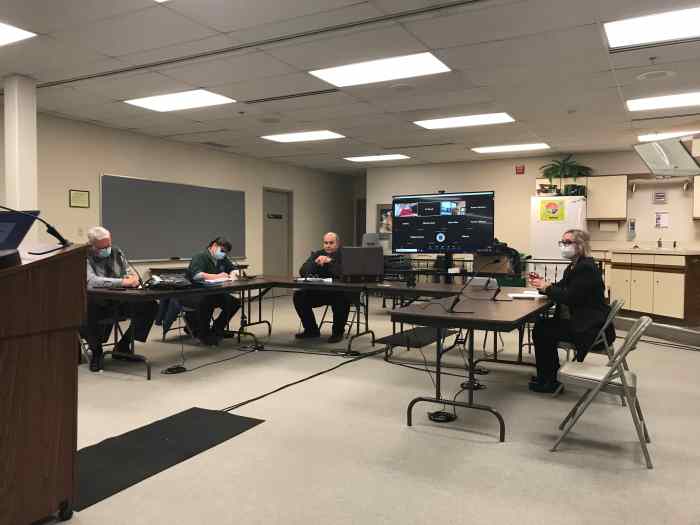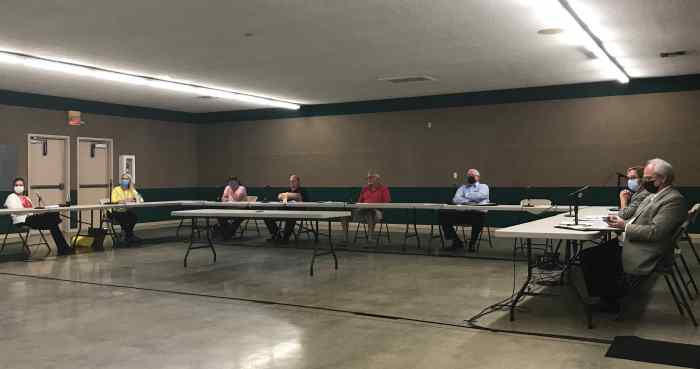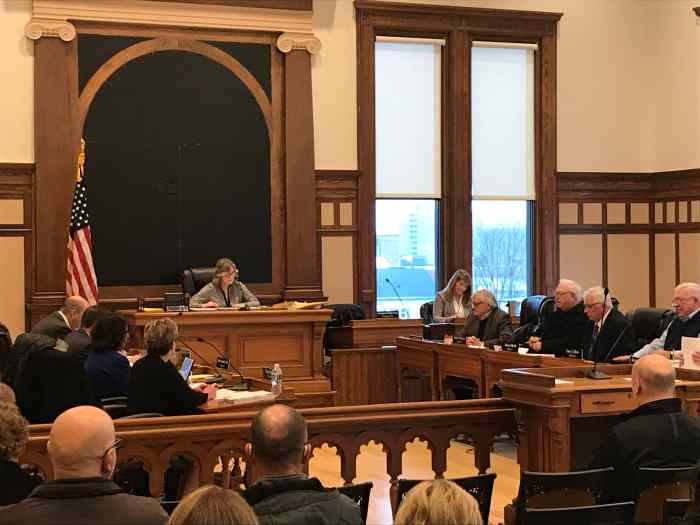Lenawee County Board of Health v. Messerly stands as a pivotal case in the annals of public health law. This legal battle brought forth fundamental questions regarding the balance between individual rights and the government’s authority to safeguard public health, particularly during times of crisis.
As we delve into the intricacies of this case, we will explore the legal arguments presented by both sides, examine the court’s decision and its reasoning, and analyze the broader implications for public health policy.
At the heart of this case lies the legal basis for the Lenawee County Board of Health’s authority to issue public health orders. We will dissect the limits of this authority as established by the court’s decision, considering the delicate balance between individual rights and the government’s responsibility to protect the well-being of the community.
Case Summary

In Lenawee County Board of Health v. Messerly, the plaintiffs challenged the authority of the Lenawee County Board of Health to issue public health orders during the COVID-19 pandemic. The plaintiffs argued that the orders violated their individual rights to bodily autonomy, freedom of assembly, and free exercise of religion.
The Lenawee County Board of Health argued that it had the authority to issue the orders under Michigan law and that the orders were necessary to protect the public health.
The court ruled in favor of the Lenawee County Board of Health, holding that the Board had the authority to issue the orders and that the orders were necessary to protect the public health. The court found that the plaintiffs’ individual rights were not violated by the orders.
Public Health Authority

The Lenawee County Board of Health’s authority to issue public health orders is based on Michigan law. The Michigan Public Health Code gives local health departments the authority to “take all necessary measures to prevent the spread of disease and to protect the public health.”
This authority includes the power to issue orders that are “necessary to protect the public health.” The Lenawee County Board of Health’s orders were issued under this authority.
The court’s decision in Lenawee County Board of Health v. Messerly affirmed the authority of local health departments to issue public health orders. The court found that the Board’s orders were “necessary to protect the public health” and that the Board had the authority to issue the orders under Michigan law.
Individual Rights
The plaintiffs in Lenawee County Board of Health v. Messerly asserted several individual rights, including the right to bodily autonomy, freedom of assembly, and free exercise of religion. The plaintiffs argued that the Board’s orders violated these rights.
The court balanced the plaintiffs’ individual rights against the government’s interest in protecting public health. The court found that the Board’s orders did not violate the plaintiffs’ individual rights. The court found that the orders were necessary to protect the public health and that the plaintiffs’ rights were not unduly burdened by the orders.
Emergency Powers: Lenawee County Board Of Health V. Messerly

The Lenawee County Board of Health’s orders were issued under the Michigan Emergency Powers of the Governor Act. This act gives the governor the authority to declare a state of emergency and to issue orders that are necessary to protect the public health during the emergency.
The governor declared a state of emergency in Michigan due to the COVID-19 pandemic.
The court’s decision in Lenawee County Board of Health v. Messerly did not address the scope of the governor’s emergency powers. However, the court did find that the Board’s orders were necessary to protect the public health and that the orders were not arbitrary or capricious.
Legal Precedents
The court in Lenawee County Board of Health v. Messerly cited several legal precedents in its decision. These precedents included:
- Jacobson v. Massachusetts (1905): In this case, the Supreme Court upheld a state law that required all adults to be vaccinated against smallpox. The Court found that the state had the authority to require vaccinations to protect the public health.
- Prince v. Massachusetts (1944): In this case, the Supreme Court upheld a state law that prohibited children from attending school without being vaccinated against certain diseases. The Court found that the state had the authority to require vaccinations to protect the public health.
These precedents supported the court’s decision in Lenawee County Board of Health v. Messerly. The court found that the Board had the authority to issue the orders under Michigan law and that the orders were necessary to protect the public health.
Impact and Implications
The decision in Lenawee County Board of Health v. Messerly has several implications for public health law and policy. The decision:
- Affirms the authority of local health departments to issue public health orders.
- Upholds the government’s interest in protecting public health.
- Limits the scope of individual rights during a public health emergency.
The decision is likely to be cited in future cases involving public health orders. It is also likely to influence the development of public health policy.
Expert Answers
What were the main legal arguments presented by the plaintiffs in Lenawee County Board of Health v. Messerly?
The plaintiffs argued that the Lenawee County Board of Health’s public health orders violated their individual rights to liberty and bodily autonomy, as well as their right to engage in religious practices without government interference.
How did the court balance individual rights against the government’s interest in protecting public health?
The court recognized the importance of individual rights but ultimately held that the government has a legitimate interest in protecting public health, especially during a pandemic. The court found that the public health orders were narrowly tailored to achieve this goal and were not an unreasonable infringement on individual rights.
What are the broader implications of the Lenawee County Board of Health v. Messerly decision for public health law and policy?
The decision reinforces the authority of public health agencies to issue orders to protect public health, even when those orders may infringe on individual rights. However, it also highlights the importance of carefully balancing individual rights and public health interests, and of ensuring that public health measures are narrowly tailored and not overly burdensome.